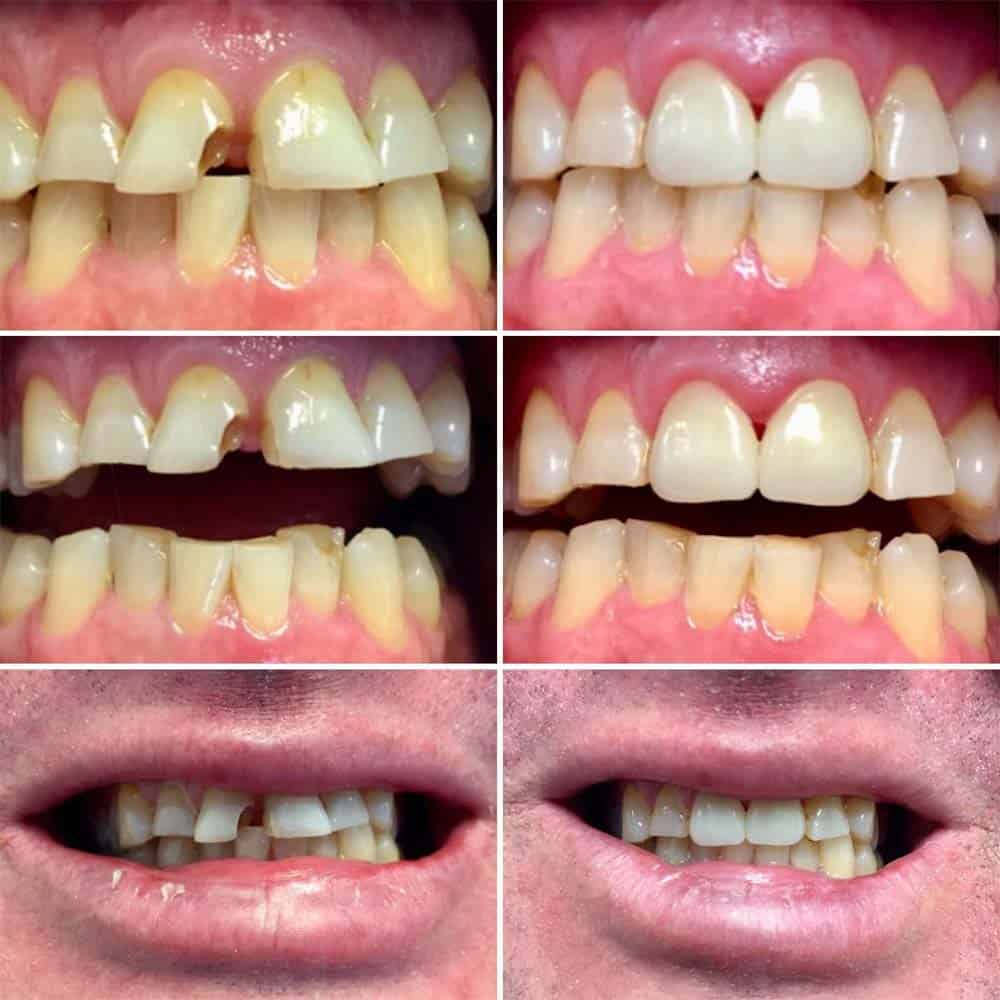How To Fix Broken Teeth? Fast Relief Options

Broken teeth can be a painful and distressing experience, affecting not only the appearance of your smile but also your overall oral health and self-confidence. Whether it’s a sudden accident, a sports injury, or the result of gradual wear and tear, addressing a broken tooth promptly is essential to prevent further complications and alleviate discomfort. In this comprehensive guide, we’ll explore the various options for fixing broken teeth, focusing on fast relief methods to get you back to your normal life as quickly as possible.
Understanding Broken Teeth
Before diving into the solutions, it’s crucial to understand the nature of a broken tooth. A tooth can be considered broken if it’s chipped, cracked, or fractured. The severity of the break determines the appropriate treatment. For minor chips or small cracks, a dentist might recommend a simple filling or bonding. However, more severe breaks might require more invasive procedures like crowns, root canals, or even extraction in extreme cases.
Immediate Actions for Fast Relief
If you’ve just broken a tooth, the immediate actions you take can significantly impact the success of the subsequent treatments and your comfort level.
Rinse Your Mouth: Gently rinse your mouth with warm water to remove any debris. If there’s bleeding, apply a piece of gauze to the area for about 10 minutes or until the bleeding stops.
Apply a Cold Compress: A cold compress or an ice pack wrapped in a cloth can help reduce swelling and ease pain. Apply it to the cheek near the broken tooth for 10-15 minutes at a time.
Take Pain Relievers: Over-the-counter pain relievers like ibuprofen (Advil, Motrin) or acetaminophen (Tylenol) can help alleviate pain. However, always follow the recommended dosage and consult your dentist before taking any medication.
Avoid Certain Foods: Try to avoid eating or drinking anything that could exacerbate the condition, such as hot, cold, sweet, or hard foods and beverages.
Dental Treatments for Broken Teeth
The choice of treatment depends on the extent of the break and the tooth’s condition.
Dental Bonding: For small chips, dental bonding can be an effective solution. It involves applying a tooth-colored resin to the tooth and then hardening it with a special light, bonding it to the tooth to restore its shape and appearance.
Dental Crowns: A more severe break might require a dental crown. A crown is a cap that covers the entire tooth, restoring its shape, size, strength, and appearance. Crowns can be made from various materials, including porcelain, ceramic, or gold.
Root Canal: If the break is deep and reaches the pulp (the soft tissue inside the tooth containing nerves and blood vessels), a root canal might be necessary. This procedure involves removing the damaged pulp, cleaning and disinfecting the area, and then filling and sealing the tooth.
Tooth Extraction: In some cases, if the tooth is beyond repair, extraction might be the only option. This can be followed by replacement options such as dental implants, bridges, or dentures.
Emergency Dental Visits
For fast relief and to prevent further complications, it’s crucial to visit a dentist as soon as possible. Emergency dental visits can provide immediate care for broken teeth, helping to alleviate pain, prevent infection, and preserve the tooth if possible.
Preventive Measures
While accidents can happen, there are steps you can take to reduce the risk of breaking a tooth:
- Wear a Mouthguard: During sports or any activity that could potentially lead to mouth injury.
- Avoid Chewing Hard Objects: Items like ice, hard candy, or popcorn kernels can chip or crack teeth.
- Regular Dental Check-Ups: Early detection of dental issues can prevent minor problems from becoming major ones.
Conclusion
Broken teeth, while distressing, can often be fixed with modern dental treatments, offering fast relief from pain and restoring the appearance and function of your teeth. Whether through minor procedures like bonding or more complex treatments such as crowns or root canals, dental care has advanced significantly, making it possible to address broken teeth effectively and efficiently. Remember, prompt action and regular dental care can make all the difference in maintaining a healthy, beautiful smile.
How do I know if my tooth is broken?
+A broken tooth might be visible if it’s chipped or fractured. However, sometimes the break can be microscopic or internal. Symptoms can include pain when biting or chewing, sensitivity to temperature changes, or a feeling that something is off when you bite down. If you suspect a broken tooth, it’s essential to consult a dentist for a proper diagnosis.
Can a broken tooth heal on its own?
+No, a broken tooth cannot heal on its own and requires professional dental treatment to repair or restore it. The sooner you seek dental care, the better the chances of saving the tooth and preventing further complications.
How much does it cost to fix a broken tooth?
+The cost of fixing a broken tooth varies widely depending on the severity of the break and the necessary treatment. Simple procedures like bonding might be relatively inexpensive, while more complex treatments such as crowns or root canals can be more costly. It’s best to consult with a dentist for a detailed estimate based on your specific needs.


